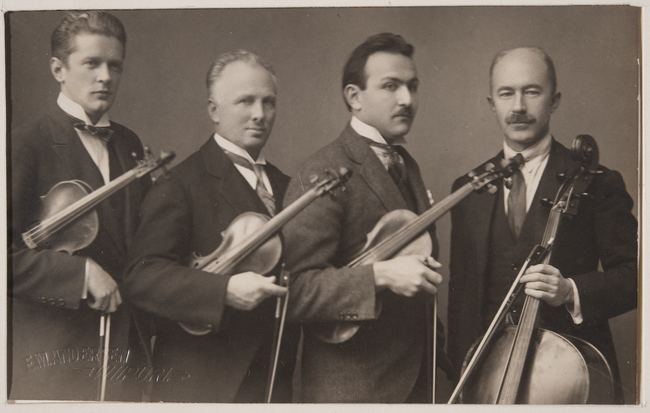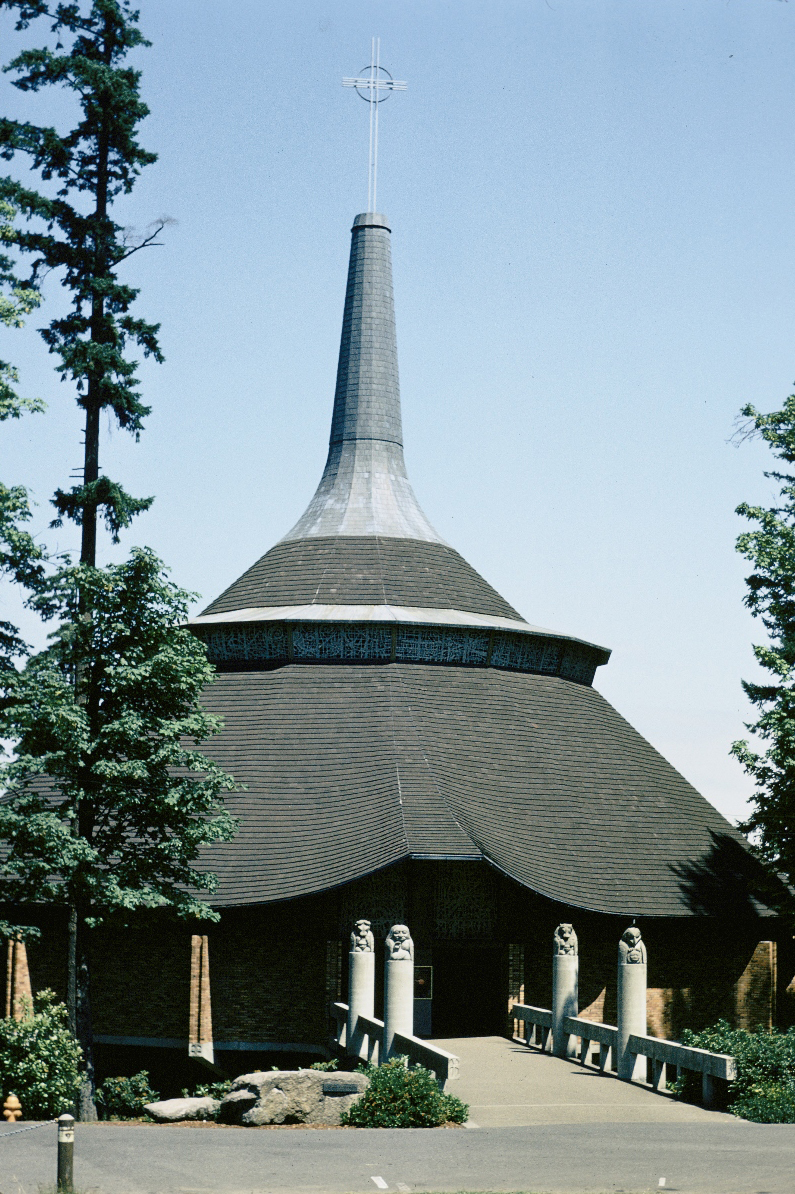Edith Kilbuck was a noted harpsichordist, pianist, and professor of music at Lewis & Clark College in Portland. Her keen interest in the field of historical performance practices, especially during the Baroque period, inspired a generation of performers and scholars whose introduction to the field was their participation in her Collegium Musicum, a student chamber ensemble.
Edith Henry Kilbuck was born in Hood River on March 27, 1931. She was descended from the Delaware (Lenape) headman Gelelemend, a signer of the Delaware Nation’s 1778 treaty with the United States. Her grandfather, John Kilbuck, was the first Indigenous person ordained by the Moravian Church, and he and his wife—Edith's namesake—established the first Alaskan Moravian Mission in Bethel, Alaska.
Kilbuck's musical life began when she was five years old and took piano lessons, financed in part by her brother’s paper route. Her musical talent caught the attention of Boris Sirpo, a Russian-Finnish musician who taught string students and conducted Hood River Music Association orchestras. For ten years, Kilbuck played with the community orchestra, accompanied and wrote orchestral parts for the chorus, and coached young string players. She also commuted by bus to Portland, where she studied piano with David Campbell, Sirpo's colleague at Lewis & Clark College.
At Lewis & Clark, Kilbuck continued her studies with Campbell and Sirpo, the conductor of the college orchestra. She graduated in 1952 and enrolled at the Juilliard School in New York City, where study with Sergius Kagen led her to a career as an opera coach, an accompanist for singers of art songs (lieder), and a diction instructor in French and German. In 1955, she earned a master’s degree in piano and accompanying piano from Juilliard, where she then taught and coached. She worked during the summers as an opera coach and lieder accompanist at the Aspen Music Festival, and in 1958 taught at the University of Miami—the "first opportunity,” she remembered, “to try my professional skills away from the watchful eyes and supportive advice of my teachers and mentors."
In 1962, Kilbuck was the first recipient of the Benton County Foundation’s Petri Award for Foreign Study, which allowed her to study in Vienna with Bruno Seidlhofer. She also toured with an American cellist and accompanied vocal recitals in Vienna and Zürich. After returning to Portland, she worked for a brief time at the University of Portland and then part-time at Lewis & Clark College. She accepted a full-time teaching position at Lewis & Clark in 1965 to teach music theory, opera, chamber music, and piano, and she continued to perform recitals with major artists, including cellist János Starker.
Kilbuck’s career as a pianist ended abruptly in 1967 when she suffered bursitis in her shoulders. Corrective surgery failed to relieve the pain and physical demands of playing the piano, but a summer workshop at Stanford University gave her hope. “I found I could adjust my piano technique quite naturally to harpsichord technique,” she said, and “that the physical demands of playing harpsichord were much easier than the physical demands of playing piano.” She performed her first solo recital as a harpsichordist at Lewis & Clark College in 1969.
Kilbuck began studying music history and performance practice at the University of Oregon, completing her doctoral degree in 1976 with a dissertation on the analysis and performance of the toccatas by seventeenth-century German composer Johann Jakob Froberger. A grant allowed her to study the harpsichord in Florence, Prague, Antwerp, Haarlem, Bruges, and Oxford, and she and violinist Endre Granat performed and recorded J.S. Bach’s Complete Works for Violin and Harpsichord (1976). She also performed as a harpsichord soloist with the Spokane Symphony Chamber Orchestra and the Mount Angel Abbey Bach Festival.
After taking early retirement at Lewis & Clark College in September 1989, Kilbuck taught harpsichord while pursuing new interests in editing music manuscripts and performing harpsichord recitals, including two complete cycles of the forty-eight preludes and fugues in Bach's Well-Tempered Clavier in 1987 and 1988. The Oregonian’s music critic, David Stabler, praised her “remarkably brave approach to what is often referred to as the ‘Old Testament’ of keyboard music." She received the Distinguished Alumni Award from Lewis & Clark College in 1995.
Kilbuck’s interest in her family’s roots in the Moravian Church led her to study in the Moravian Archives in Bethlehem, Pennsylvania, and she researched and edited eighteenth-century music manuscripts in the home of the Moravian Church in Herrnhut, Saxony. She also had an increasing interest in her family's Native American history and identity.
Edith Kilbuck died at dawn on Easter Sunday on March 23, 2008.
-
![]()
Edith Kilbuck.
Courtesy History Museum of Hood River -
![]()
-
![]()
Edith Kilbuck, c.1965.
Courtesy Special Collections and College Archives, Watzek Library, Lewis and Clark College -
![]()
Edith Kilbuck teaching at Lewis and Clark College, c.1965.
Courtesy Special Collections and College Archives, Watzek Library, Lewis and Clark College -
![]()
Edith Kilbuck, Professor of Music, Lewis and Clark College, 1963-1989.
Courtesy Special Collections and College Archives, Watzek Library, Lewis and Clark College
Related Entries
-
![Ariel Rubstein (1899–1997)]()
Ariel Rubstein (1899–1997)
Ariel Rubstein—classical pianist, composer, music educator, conductor, …
-
![Boris Sirpo (1893–1967)]()
Boris Sirpo (1893–1967)
Violinist, teacher, composer, and conductor Boris Sirpo was best known …
-
![Lewis & Clark College]()
Lewis & Clark College
Lewis & Clark College, a private and academically selective liberal art…
-
![Reinhard G. Pauly (1920–2019)]()
Reinhard G. Pauly (1920–2019)
Reinhard Pauly was a scholar, writer, and performer and a longtime prof…
Map This on the Oregon History WayFinder
The Oregon History Wayfinder is an interactive map that identifies significant places, people, and events in Oregon history.









